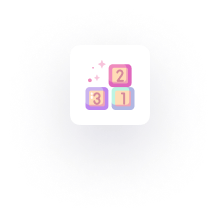What is Docker?
Docker is an open-source containerization platform that allows you to containerize or bundle your application in a container and share them using public or private registries. It enables the development team to develop, ship, and run application containers on a common OS and separate applications from infrastructures so that software is delivered quickly.
While explaining the concept of containerization, you should have noticed that it was just an idea that solves a myriad of problems in software engineering by bundling things into containers.
It was a concept and not the actual implementation. This very idea has a number of implementations.
However, Docker is one of the actual implementations of the containerization idea and a very popular one according to the Stack Overflow survey.
As stated earlier, the idea of containerization is old and there have been many technologies that have helped in the major turning points for the technology. I will save you the history for this tutorial but you can read the brief history of containers from the 1970s till date which covers everything you need to know.
Furthermore, let’s explore the features of Docker and what makes it very popular among professional software engineers.
Features of Docker
Every technology has unique problems they are trying to solve. In this section, I will explore the key features and other features of Docker.
Containerization
Docker allows applications to be packaged into containers, providing a lightweight and portable environment that includes all the necessary dependencies. Containers offer consistency across different systems, making it easier to deploy and run applications consistently across various environments.
Image-based Deployment
Docker employs a layered file system known as Docker images. Images contain everything needed to run an application, including the code, runtime, libraries, and system tools. These images can be version-controlled, shared, and reused, ensuring consistent deployment across development, testing, and production environments.
Efficient Resource Utilization
Docker enables efficient resource utilization by running multiple containers on a single host, utilizing shared resources while maintaining isolation. This allows for better utilization of hardware resources, resulting in higher efficiency and cost savings.
Rapid Application Deployment
Docker simplifies the application deployment process. With Docker, applications can be packaged into containers and deployed quickly, ensuring consistency and reducing the chances of deployment-related issues.
Scalability
Docker provides built-in scalability features, allowing applications to scale horizontally by adding or removing containers based on demand. Docker's orchestration tools, such as Docker Swarm or Kubernetes, enable efficient container management and automated scaling.
Isolation and Security
Docker containers provide process isolation, ensuring that applications and their dependencies are encapsulated and separated from the underlying host system. This isolation enhances security by reducing the attack surface and minimizing the impact of potential vulnerabilities.
Swarm
Docker Swarm is an orchestration tool designed specifically for Docker containers, providing clustering and scheduling capabilities. It leverages the Docker API at its forefront, facilitating seamless integration with diverse tools for efficient management. Swarm functions as a self-organizing ensemble of container engines, offering the flexibility of employing pluggable backends.
Services
Services refer to a collection of tasks that define the desired state of a container within a cluster. Each task listed within Services represents an individual instance of a container that should be active. Swarm, the orchestration tool, takes care of intelligently distributing and scheduling these tasks across the available nodes within the cluster.
Routing Mesh
Docker's routing functionality directs incoming requests for published ports to active containers on available nodes. This capability allows connections to be established even if there are no running tasks on a specific node.
What can I use Docker for?
Consistent Delivery of Applications
With Docker, you can deliver your application faster and more consistently by bundling your application with all its dependencies in a container and sharing the container with your teammates or deploying it to a production environment easily.
Containers provide an exceptional solution for facilitating seamless integration and swift delivery within a continuous integration and continuous delivery (CI/CD) workflows.
Responsive Deployment and Scaling
The Docker containers are very portable and can run easily on the developer’s local machine, a physical or virtual server, a cloud server, etc. The portability and lightweight nature of Docker containers make it painless to deploy and scale applications.
Running more workloads on the same hardware
With Docker, you can optimize resource utilization and enable the efficient execution of multiple applications or services on a single physical or virtual machine.
Traditionally, running multiple applications on the same hardware would involve installing them directly on the operating system, which can lead to compatibility issues, dependency conflicts, and resource wastage. However, Docker's containerization technology addresses these challenges.
Why you should learn Docker
We have seen a tremendous increase in developer-focused tools in recent years and it’s gradually becoming difficult to keep up with learning them. Also, identifying good developer tools that will stand the test of time is difficult.
So if you ask:
“Why should you learn Docker” In your mind then it's a valid wrong question.
Personally, before I embark on learning any technology I make sure to Do My Own Research (DYOR) and discover why I should learn a specific technology.
In this section, I’m going to share my personal reasons plus that of my friend Dan Bruce when we jumped on a call to discuss the same topic.
So why did I or Dan Bruce learn Docker?
Here is why?
First, different reasons propel individuals to choose a particular tool for their project and the points listed below are opinionated to give you the reasons to learn Docker today.
In the previous sections, we have explored the benefits of Docker to the development teams and also stated some of the features of Docker that make it stand out from other Containerization tools.
However, If the above benefits are not enough, here are our top reasons to learn Docker:
Career Opportunities
According to the Stack Overflow Survey 2023, Docker is the top tool for professional software engineers and companies are building more containerized applications thereby highly searching for engineers who can dockerize their applications.
Containerizing your applications
Aside from working for a company with your Docker skills, you can take advantage of building containerized applications for your projects and use your Docker skills to containerize your applications.
Onboarding team
In engineering teams, onboarding new teammates use to be very challenging because different team members use different operating systems or different versions of applications and dependencies. Therefore setting up a team member can be a nightmare. From my experience joining a Fintech company years ago, it took me more than 4 weeks to fully set up the code base on my Mac since the codebase was developed in Linux.
Docker will have solved this problem by allowing me to install all the dependencies with one command without manually installing all the dependencies.
Therefore, eliminating the popular “It worked on my machine” complaint.
Building your Infrastructure
Following the containerization approach using Docker forces you to think about your infrastructure from the development point. When you build your application using Docker and a containerization mindset, you’re already setting the infrastructure for the production environment, staging environment as well as development environment.
Docker vs Other Containerization Implementations
As we have discovered, Docker is not the only containerization implementation. There are other containerization engines such as Podman developed by Red Hat, Kaniko by Google, and RKT by CoreOS that are amazing alternatives to Docker.
According to Statista, In 2022, Docker commands a 27 percent market share of the containerization technologies market. LXC and Kubernetes held the second and third places, respectively.
 Next, take a look at the summary of some of the features of Docker alternatives and compare them with the features and benefits of using Docker.
Next, take a look at the summary of some of the features of Docker alternatives and compare them with the features and benefits of using Docker.




